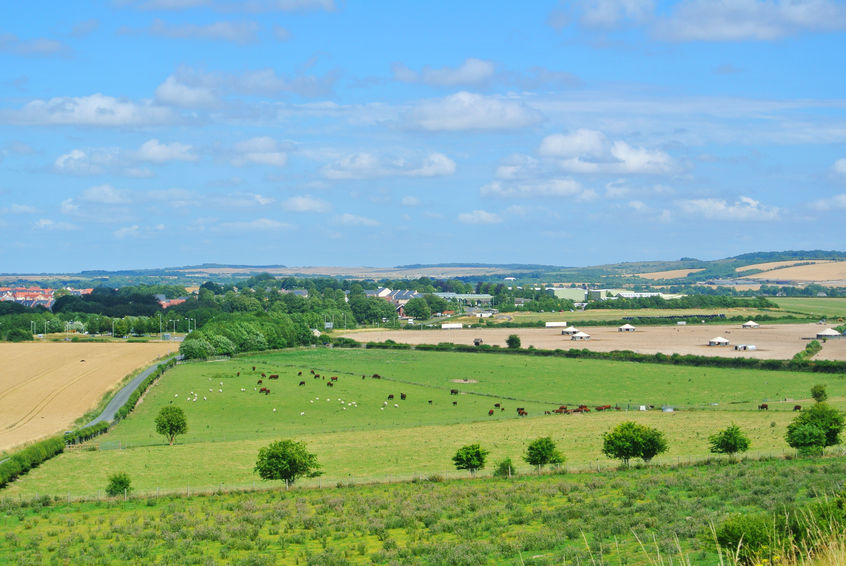
With farming leaders warning that wheat yields this autumn will be down by about a third, 2020 will no doubt be remembered as the year that tested farmers' ability to cope in the face of adversity.
In this article, Brian Richardson, UK Head of Agriculture at Clydesdale & Yorkshire Bank, comments on the times ahead and the capacity for the industry to bounce back after consecutive seasons of unprecedented weather.
“This year’s sequence of extreme weather events along with all the difficulties of a global pandemic seems to be testing the resilience of the UK farming sector like never before.
"While it has never been an easy job, most farmers live with these agricultural challenges and are good at finding ways to fill any gaps when a harvest does not meet expectations.
"The conditions over the last 12 months will make this more difficult, especially taking into account that last autumn was exceptionally wet resulting in less wheat getting planted.
"While some of the gap was made up with spring crops like barley, the February floods and now thunderstorms in August will present a real challenge in terms of gathering the harvest in at the volumes and prices that farmers usually rely on for their produce.
“With the record-breaking temperatures now impacting grain yields, I know many farmers will already be looking forward to next year and will be very focused on getting planted up this autumn to make up the deficit.
"The challenge will be to face the oncoming period of significant change in terms of Brexit, while grappling with the possibility that this year’s weak wheat harvest could leave the UK as a net importer of grain rather than net exporter.
“Farmers are often seen as being quick to complain when things are against them, but the job they do is critical to everyone, and Covid-19 has arguably generated a greater level of respect for farmers as essential workers.
"This year they have dealt with the initial disruption in their supply contracts with lockdown, alongside the well-known challenges over labour availability.
"Yet pure resilience and adaptability has seen the farming community rally round to work together and keep the nation fed.
"That’s how shelves have been kept stocked and why we should be so proud of British farmers and the job they do 365 days a year. Whatever the challenge, they always look ahead and move on with greater resilience.

“Given the very severe disruptions elsewhere in the economy farmers do not expect sympathy for the challenges they face this harvest.
"Their attitude to dealing with issues head on is proven by their response to COVID and also how they are looking to address the escalating climate crisis.
"The industry set the ambition to be net zero by 2040, 10 years ahead of the governments own target, and farms are increasingly focused on how they can adjust their businesses to play a key role in the net zero agenda.
“Given that the numbers employed in farming are down to circa 400,000 and the contribution to GDP from farming is now in low single digit figures, its role in the wider economy is often overlooked or downplayed.
"But the corona crisis has highlighted the important job farmers do in making sure food is on the shelves.
"It’s again demonstrated the industry’s resilience in overcoming challenges and keeping up production of high-quality food at incredible value for money.
“Farming is a long-term industry, even if from one year to the next the cyclical highs and lows can make any shocks feel very immediate.
"Farmers will no doubt weather the difficulties of this season, and with a period of great change ahead, will be ambitious in finding opportunities or new approaches to overcoming future risks.
"All the while, they will be looking after the countryside and producing great food for everyone.
“So as a final note, especially as farmers face a potentially record-breaking difficult harvest, let us all appreciate the essential work they do day in day out.
"Those in farming are a pragmatic bunch, used to accepting whatever happens. With more rain on the way, they will have to exercise their great reserves of patience.
"For this we must thank them, as they are the ones who keep bread on our tables, so we would all do well to remember this when we see a farmer at work in the field this harvest."
